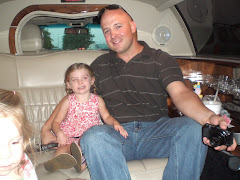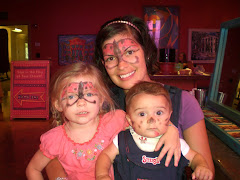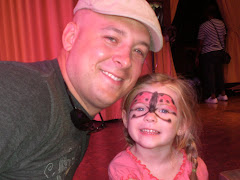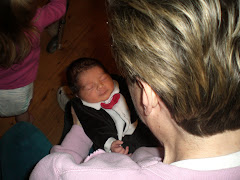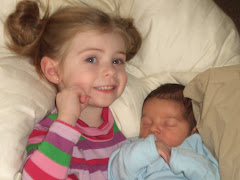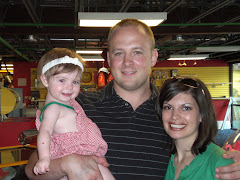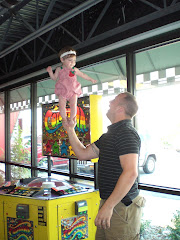This month's entry comes from Reaching Teens in their Natural Habitat by Danny Holland.
Escape the Tunnel Vision, p70-72
When police officers go through a law enforcement academy, much training time is spent learning to handle their firearms. They study shootings and learn the latest techniques for surviving a life-and-death battle. One natural tendency they need to unlearn, though, is tunnel vision. When we're faced with a threat, we automatically direct all available attention and energy to neutralizing that threat. For police officers this presents a serious problem because they must often engage multiple threats simultaneously.
Police officers are trained to fire at their targets and then sweep their eyes to the left and the right before re-holstering their weapons. Why? Because in the past officers were re-holstering their weapons before making sure the scene was clear of other threats. Officers who survived the initial threat but still focused on it even after it was gone were being killed by other threats they never saw. Their tunnel vision kept them from seeing other dangers.
We as parents can fall prey to tunnel vision too. Focused on social influences, peer pressure, and other threats to the moral upbringing of our kids, we wield our parental defensive weapons with tactical excellence. But if we're not careful, we can become so consumed with protecting our sons and daughters that we may ignore the powerful offensive role we must play as a successful life coach. A dominant, defensive survival mind-set tends to react to negative circumstances, influences and events. Parenting from this posture can limit our role as parents to be emergency responders who engage the dangers to our children's future.
When it comes to our kids, no matter what their age, we need to be strategic and intentional rather than just reacting to negative circumstances. I know many kids who create negative situations to foster interactions with their parents. We parents need to find a balance between being proactive and reactive. Ask yourself, "Why am I protecting my son/daughter?" When it comes to convincing our teenagers to avoid behavior that could hurt them or cause them painful regrets, a positive reason can be much more compelling than a negative one.
When I turned fifteen, I participated in an abstinence program called Tru Love Waits. I signed my name on a card pledging that I would not have sex until I was married, and I received a ring from my parents as a reminder of this decision. I have to admit, though, that I thought I would be married by the time I turned eighteen! Twenty-one, twenty-two, twenty-three, twenty-four--the years slowly crept by. What had I been thinking? I began to recall my motivation, envisioning my wedding night, handing the ring to my wife and seeing the look on her face. I knew she would be able to trust me the rest of our lives because I havd been faithful to her before I ever knew her. I knew I would have no regrets, no diseases, no children by other women and no unwanted faces in my mind. At twenty-five I finally walked down the aisle with my wife. In our hotel room on our wedding night, I handed Amanda my ring and said, "Amanda, before I ever knew you, I loved you enough to save myself for you." My dream of what I wanted my marriage to be like kept me pure. Sure, regrets crossed my mind, but the positive vision of my future compelled me to stay on track.
We parents need to intentionally prepare our children and teenagers for their future by both providing a hedge of protection around them in the form of rules, accountability, structure, and giving them powerful reasons for doing the right thing. After all, if a coach prepared his team only to stop the opponent's strong offense, his team would still be defeated. As we coach our children, let's not forget our offensive strategy.
Thursday, April 30, 2009
Wednesday, April 8, 2009
April - Parent Education
This month's exerpt is from Reaching Teens in their Natural Habitat by Danny Holland.
Teaching Versus Training (pages 62-64)
"There is a key element that is impacting and shaping kids. Knowing that it exists will give you, the parent, a greater advantage in reaching your teens. Most of us have sat our kids down and given them talks. We teach our kids from our well of knowledge and try to impart vital information. Teaching is an effective way of giving kids information. Let's look at a typical teaching moment."
"We sit Johnny down and envision turning on his internal recorder. We then go on to explain why homework is vital to getting good grades, why good grades are vital to getting a good ob, and why a good job is vital to success in life. No matter what the topic of our talk, we reach the point where we feel either that we have exhausted the topic or Johnny has grasped the information. At this point we often assume that Johnny has turned off his internal recorder since our talk is over. But teaching isn't the only vehicle we have for getting information to our kids."
"Every waking moment our kids are with us, their learning recorders are on. They watch us eat, talk, argue, manage our time, manage our resources, and so on. Every day they watch us live, and by watching us, they are being trained. We teach kids by sharing what we know, but we train them by who we are. I remember the first time I noticed this process in action."
"When my son was about two years old, we had a yellow Lab named Bud. He was the most compliant dog on earth, but because Bud was a big dog and we had little kids in the house, we still had to be very strict with him. One day my son decided to discipline the dog. "Bud, NO!" he yelled. I looked over at Bud. He was standing in the corner looking around, rather dumbfounded. It took me a second to realize that my son had never been taught how to discipline a dog, but he had been trained to do it by watching me."
"The story of Evan Ramsey, a school shooter from Alaska, also comes to mind. Evan was interviewed by MSNBC about his actions at his Bethel, Alaska, school. Something in that interview jumped out at me. Evan's father, Don Ramsey, had been arrested years earlier for storming the Anchorage Times when the paper didn't publish an article he had written. Armed with a small arsenal of wepons, he had fired warning shots into the ceiling and taken people hostage. He later surrendered. There, when dealing with some difficult issues at school, Evan did exactly what his father had trained him to do by his actions. Evan took the same type of weapon, stormed the school, and fired warning shots into the ceiling. Evan was actually assigned to the same jail cell that his father had occupied after his rampage. I seriously doubt Evan's father intentionally taught him how to go on a rampage, but clearly Evan had been trained."
"Let me give you another example. Growing up, baby Juan occasiounally sees Dad come home from work on Friday in a bad mood. Dad sits in his chair, drinks a few beers, and seems to feel much better. Fourteen years leater, Juan gets his report card at school and realizes that his social life is pretty much over as he has known it. So Juan goes home and smokes some marijuana. Mom walks in on him and is horrified by his drug use. In this scenario, what did dad do? He used a legal chemical to change the way he felt. What did Juan do? He used an illegal chemical to change the way he felt. Juan had been trained."
This is very relevant to Proverbs 22:6 "Train up a child in the way he should go, and when he is old he will not depart from it." God is calling us to raise our kids by training them, not teaching them. We as parents and educators can talk all day, but the kids will be watching us more than they are listening to us. To train them, we must be a living example.
Teaching Versus Training (pages 62-64)
"There is a key element that is impacting and shaping kids. Knowing that it exists will give you, the parent, a greater advantage in reaching your teens. Most of us have sat our kids down and given them talks. We teach our kids from our well of knowledge and try to impart vital information. Teaching is an effective way of giving kids information. Let's look at a typical teaching moment."
"We sit Johnny down and envision turning on his internal recorder. We then go on to explain why homework is vital to getting good grades, why good grades are vital to getting a good ob, and why a good job is vital to success in life. No matter what the topic of our talk, we reach the point where we feel either that we have exhausted the topic or Johnny has grasped the information. At this point we often assume that Johnny has turned off his internal recorder since our talk is over. But teaching isn't the only vehicle we have for getting information to our kids."
"Every waking moment our kids are with us, their learning recorders are on. They watch us eat, talk, argue, manage our time, manage our resources, and so on. Every day they watch us live, and by watching us, they are being trained. We teach kids by sharing what we know, but we train them by who we are. I remember the first time I noticed this process in action."
"When my son was about two years old, we had a yellow Lab named Bud. He was the most compliant dog on earth, but because Bud was a big dog and we had little kids in the house, we still had to be very strict with him. One day my son decided to discipline the dog. "Bud, NO!" he yelled. I looked over at Bud. He was standing in the corner looking around, rather dumbfounded. It took me a second to realize that my son had never been taught how to discipline a dog, but he had been trained to do it by watching me."
"The story of Evan Ramsey, a school shooter from Alaska, also comes to mind. Evan was interviewed by MSNBC about his actions at his Bethel, Alaska, school. Something in that interview jumped out at me. Evan's father, Don Ramsey, had been arrested years earlier for storming the Anchorage Times when the paper didn't publish an article he had written. Armed with a small arsenal of wepons, he had fired warning shots into the ceiling and taken people hostage. He later surrendered. There, when dealing with some difficult issues at school, Evan did exactly what his father had trained him to do by his actions. Evan took the same type of weapon, stormed the school, and fired warning shots into the ceiling. Evan was actually assigned to the same jail cell that his father had occupied after his rampage. I seriously doubt Evan's father intentionally taught him how to go on a rampage, but clearly Evan had been trained."
"Let me give you another example. Growing up, baby Juan occasiounally sees Dad come home from work on Friday in a bad mood. Dad sits in his chair, drinks a few beers, and seems to feel much better. Fourteen years leater, Juan gets his report card at school and realizes that his social life is pretty much over as he has known it. So Juan goes home and smokes some marijuana. Mom walks in on him and is horrified by his drug use. In this scenario, what did dad do? He used a legal chemical to change the way he felt. What did Juan do? He used an illegal chemical to change the way he felt. Juan had been trained."
This is very relevant to Proverbs 22:6 "Train up a child in the way he should go, and when he is old he will not depart from it." God is calling us to raise our kids by training them, not teaching them. We as parents and educators can talk all day, but the kids will be watching us more than they are listening to us. To train them, we must be a living example.
Subscribe to:
Posts (Atom)


